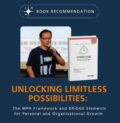
21st century leaders use transformational coaching as a business strategy to build strong and sustainable organization. They aim to partner with their staff in evoking self-awareness and self-directed thinking process, so that to inspire staff’s personal and professional potential. Through transformational coaching, the leaders hope to transform their people (staff)’s internal thinking and feelings, to generate solutions, actions from within each individual staff to successfully handle personal and professional challenges in today’s uncertain and complex business environment.
What is Transformational Coaching?
Per ICF (International Coaching Federation) definition:
“Coaching is a partnering with clients in a thought-provoking and creative process that inspires them to maximize their potential and professional potential, which particularly important in today’s uncertain and complex environment”.
Transformational coaching focuses on:
- building trusting relationships between the coach and the coachee(s) (eg. staff) to encourage them towards self-directed discovery.
- respecting and honouring each individual (staff) as an expert in his/her own life and career, helping him/her to identify, clarify and align his/her personal or professional needs.
- collaborating with each individual (staff) by maintaining presence and actively listening (both verbal and non-verbal) for the greatness within the individual(s).
- asking powerful questions that help each individual (staff) towards evoking self awareness, and towards finding self-directed solutions.
- cultivating learning and growth by partnering with each individual (staff) to transform his/her new learning and insights into action.
Additionally, transformational coach also practices coaching ethics and standards (refer ICF Core Competency #1) and establishes agreements about coaching relationship, process, plans and goals with each individual (staff) (ICF Core Competency #3).
How Can Transformational Coaching Help to Build a Strong and Sustainable Organization?
Transformational coaching focuses on driving positive behavioral change in individuals and cultural change in an organization. Transformational coaching given to organization leaders, managers and staff could help to create a positive culture of creativity, to build self-directed solution focused working culture, and to build staff towards more self-awareness, confident, and goal-oriented positive behavioral change and working culture.
Ways that transformational coaching could help to build a strong and sustainable organization include:
- Improve staff engagement: A transformational coaching could help to improve staff engagement by building a collaborative, trusting environment for the employees. Coaching help to provide clarity to the coachees (eg. leaders, managers or staff) and help in making decisions on organizational performance; business continuity; and the safety, well-being, and financial security of the staff and organization. As engagement and trust go up, work and business performance go up simultaneously.
- Change management: Change is a constant in any organization. Change could come in many forms: company re-structuring, new management, new system, etc, etc. There would be certain proportion of the employees who would be more impacted by the change(s), leading to their fears and concerns to stay engage and positive. Coaching would help the individuals to speak out their concerns during the trusting and collaborative coaching session(s) , and perhaps to self-review and self-validate the messages they were providing.
- Building a sustainable culture: Very often, when a company goes through merger or acquisition, it is likely that the change would occur throughout the entire organization, including changing behaviors of individuals and cultural change within the organization. Coaching could help individuals in the new organization to explore their own model of the world and how this colors their perceptions of the new organization and their roles in it. They can then be tested against the new norms and a new understanding created which potentially enables the individuals to move forward with a different perception of how they can add value towards forming new working culture.
- To develop greater sensitivity around the communication between top management and staff: In a corporate environment, it could be challenging to share all communication openly and transparently with all staff, especially if it is a sensitive information. As such there could be many conflicting versions of potential outcomes that could be stressful for all.
- To the staff: By providing a trusting and confidential coaching environment, the transformational coach help the coachees (staff) to better understand and articulate their concerns. Through asking powerful questions, the coach aims to evoke self-awareness within the staff, and hopefully, could help the staff to identify, clarify and align his/her personal or professional needs.
- To the top management: Transformational coaching transforms and changes organization. It helps leaders to maximize results through developing their staff, to promote knowledge sharing and learning, and to move away from a directive (telling) approach to self-directed (asking-listening) management style. Coaching cultivates positive, collaborative, solution-focused working environment that would be beneficial to the wider organization to develop greater sensitivity around the communication and a reduction of the perceived “us and them” around the outcomes.
How to choose a transformational coach?
Getting the right coach who could give positive outcomes and results are important. Below are some questions that the organization could consider in assessing the right fit:
- Has the coach the necessary experience to coach people in your organization’s context? Some questions that the organization might want to explore (if applicable) include:
- Has the coach the experience to coach staff at different levels of seniority, including senior level leaders or board of directors or an external stakeholders?
- Has the coach the local and global experience?
- Has the coach relevant experience in the similar industry? While this may not necessarily be a “must have”, having a coach with similar industry experience in the past could help to speed up the appreciation of the background.
- Has the coach managed the pressures of a P&L and the political factors that influence the outcomes at the senior/top management level such as corporate office?
- What is the track record and success rate?
- What is the coach’s credential? For example, is the coach a certified coach by an organization such as the International Coaches Federation (ICF)? While engaging a certified coach need not be the a pre-requisite, a coach who has gone through the formal ICF certified coaching program (eg. from Paradigm21 Executive Leadership Coaching Academy) would help to ensure the coach has at least the pre-requisite competencies rather than someone who just provides his/her perspective on how to handle a situation.
- How does the coach handle confidentiality? Trust between individuals being coached and the coach is the foundation of a good coaching process. The confidentiality is one of the core competencies and code of ethics of the profession and it is important to understand how the coach would handle confidentiality, that is important not only for individual(s), but also for any organization
- What values could the coach bring to the organization versus the fees? A good way is to seek clarification on the program offered by the coach, that should including preliminary discussion (chemistry session) to align on coaching goals, duration, number of coaching sessions, fees, etc, etc, and the desired outcomes at the end of the partnership.
- How does the organization/individual define and measure success in the coaching engagement? Knowing how the coach helps you to measure success is important. It could be measured in terms of skills and behavior change (e.g. improvement in listening skills) and the impact of after the coaching session (e.g. improvement in peer relationships and greater influence in the organization performance, …). Success should be assessed not just by the individual being coached but by key stakeholders they want to impact.
Conclusion:
Transformational coaching seeks to create a strong and sustainable change in an organization – the kind of change that develops leaders, teams, and cultures. Transformational coaching has become the new leadership paradigm as it helps transform and change organizations through people development, promoting self-directive thinking, knowledge sharing, self-awareness, strengthens competitive advantage and eventually, impacts the financial performance.
Transformational leaders in paradigm 21st century recognize transformational coaching as a business strategy to build a strong and sustainable organization.

